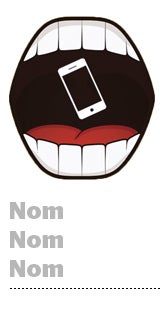 If you’re a developer looking to monetize and attribute spend across devices, Facebook and Google might soon become the only shows in town.
If you’re a developer looking to monetize and attribute spend across devices, Facebook and Google might soon become the only shows in town.
“Bummer,” called out an audience member at Grow.co’s MAU event in New York City on Tuesday.
As programmatic buying grows on mobile, so does the need for an analytics infrastructure that traces the customer journey and attributes spend to user acquisition strategies.
According to eMarketer, mobile programmatic media buying in the US is set to increase from around $4 billion today to just over $20 billion by 2017. Facebook’s and Google’s abundant user data positions them to score a lot of that incremental spend.
“Deterministic matching further accelerates the development of walled gardens,” said Eric Seufert, a partner at mobile marketing agency Heracles. Seifert joined Heracles in May after about a year and a half as VP of user acquisition and network engagement at Rovio.
Seufert said he could easily imagine a not-too-distant future in which Facebook talks up its exclusivity and ease of attribution to get developers to consolidate spend on Facebook’s platform.
Attribution gets simplified if everything happens within a single garden. Mixing traffic from other sources – anything from TV to out-of-home to ads on other networks – muddies the attribution waters.
But that would be a Faustian bargain – selling your soul in exchange for perfect (or at least pretty good) knowledge.
Facebook might say, “Work with us because we can provide you with more volume than anybody else and we can calculate ROI precisely because of all of our deterministic data,” said Seufert. “Ownership of that data could be more important that the actual provision of the ad impression.”
There’s not much that developers can do about it – not if they want granular targeting and attribution at scale.
“[But] I don’t know that it’s a problem,” Seufert said. “It’s a good thing that companies are building robust data structures that allow them to provide more value with their service. The only possibly problematic component of that [would make] working with one network over another mutually exclusive [because] it wouldn’t make sense to work with both if the traffic gets muddled together.”
The “solution” would be to go with the biggest provider and let the various behemoths “battle it out,” he said. “And in the meantime, we get to enjoy the benefits of healthy competition and cheaper prices over time.”
The more data you have, the more of a competitive advantage you have. “That’s what Facebook and Google have and you sort of have to accept that reality,” Seufert said.
Bummer.













